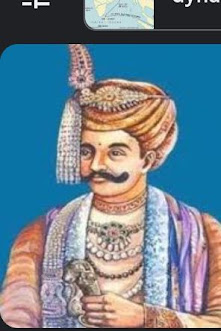The biographical details, age, early life, career, and lifestyle of Harsha Vardhana.
From the middle of the sixth to the beginning of the seventh century, Harsha Vardhana, often known as Harsha, ruled over India. King Prabhakara Vardhana of the Pushyabhuti dynasty gave birth to him at Thanesar (modern-day Haryana, India) in the year 590 CE. Harsha was born into a family of kings and went on to become one of the most powerful kings in Indian history.
Tragically, Harsha lost both of his parents when he was a small child, leaving his early years marred. He was noted for his brains and scholarly interests and was given a top-notch education in spite of this setback. He read up on everything from military tactics to Sanskrit literature to Buddhist philosophy. In addition to being a skilled poet, Harsha also had a strong interest in the arts.
CHILDHOOD
Following the murder of his older brother, Rajya Vardhana, in 606 CE, Harsha became king. His dominion grew to encompass most of modern-day northern India, extending from Bengal in the east to Punjab in the northwest. Harsha was committed to building a powerful and affluent empire by bringing the split kingdoms together.
The area had tremendous cultural and economic development during Harsha's reign. He was well-known for his support of literature and the arts, and his court developed into a center for creative and intellectual pursuits. Harsha himself was a fervent follower of Buddhism and promulgated numerous decrees endorsing its precepts. He even called a religious council at Kannauj to encourage dialogue and intellectual interchange between different Buddhist sects and supported the translation of several Buddhist books into Sanskrit.
considerably OF LIFE
Harsha was an accomplished diplomat and administrator in addition to his cultural interests. In order to enlarge his dominion, he launched military wars and cultivated cordial ties with other kingdoms. His biggest military victory was overthrowing the powerful Chalukya dynasty in the Deccan. Harsha was renowned for his kind reign, although he was more concerned in peaceful cohabitation. He established trade and commerce, constructed hospitals and rest homes, and put measures into effect intended to improve the welfare of his subjects.
PROFESSION
Even though Harsha's empire grew throughout his reign, it was difficult for him to keep it united after his death. The empire went through a period of instability following his death in 647 CE, and it finally fell apart. Harsha was a wonderful ruler who also supported the arts, therefore his legacy endured. The intellectualism and cultural liveliness of his court was well-known, and his advocacy of Buddhism greatly contributed to the religion's renaissance throughout his reign.
The most well-known historical account of Harsha's life and reign is the Harsha Charita, written by Banabhatta, a court poet who lived during his reign. The life and accomplishments of this extraordinary monarch are insightfully described in these writings.
COMPLETE ANALYSIS
An important figure in ancient Indian politics and culture, Harsha Vardhana had a profound effect on the region's political and cultural climate. His administrative prowess, encouragement of Buddhism, and support of the arts and literature are still honored today. A golden age of Indian history marked by intellectualism, harmony, and wealth is represented by the reign of Harsha.















0 Comments